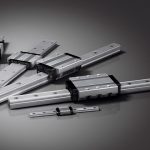Did you know that tooth loss is common among older adults? More than ten percent of the population over the age of fifty has no remaining natural teeth.
What’s more, about 25 percent of Americans have at least one missing tooth.
Is your oral health struggling due to tooth loss? If so, you are likely looking for an affordable yet effective dental treatment.
Thus, in this post, we will look at some of the different types of dentures that can remedy tooth loss. Keep reading to learn which is right for you!
Complete Dentures
Complete dentures replace a person’s entire set of teeth. So, they are best for people who have no natural teeth.
In the dental industry, these dentures are custom-made to fit the patient’s mouth, which improves their ability to chew.
However, as they do not anchor to the bone, people with full dentures can’t chew as well as they did with natural teeth. And, sometimes, they cause patients to develop a slight lisp, especially when the person is still adapting to them.
With these factors in mind, dental professionals usually recommend full dentures to elderly individuals with no remaining teeth. And, in some instances, young patients may get complete dentures if they lose all their teeth to severe decay or an injury.
Implant-Supported Partial Dentures
For patients with a few missing teeth in a row, these are usually the best dentures.
They are not removable, but they are much sturdier and allow you to chew as you would with natural teeth. Moreover, they restore your smile and protect your bite from shifting or misaligning.
Removable Partial Dentures
Partial dentures attach to a plastic base that matches the color of the gums. However, they are made of strong metals and work to restore the natural function of the teeth. Moreover, they are removable and can be replaced quite easily.
Usually, removable dentures are the best option for patients who can’t get an implant-supported partial denture.
Overdentures
Overdentures are similar to implant-supported dentures, but they are removable. Essentially, they attach to implant posts and click into place. Yet, they can replace several teeth or even an entire set.
So, if you want stable dentures that restore numerous teeth, overdentures are a great choice.
Immediate Dentures
These dentures are not permanent. Rather, they are a temporary solution for patients who had all of their teeth extracted.
Since patients must wait up to two months for their permanent set and allow their gums to heal, immediate dentures make chewing possible in the meantime.
Get Help Deciding Which Types of Dentures Are Best for You
After reading this post, you clearly understand the different types of dentures and the problems they can resolve. If you’re concerned about the price, don’t worry! The best dentist will help you find an adequate dental procedure within your price range.
So, schedule a consultation with a local dentist today! If you do, you’ll be one step closer to improving your smile and health.
If you enjoyed this post, take a moment to browse more of our health and dental content!












